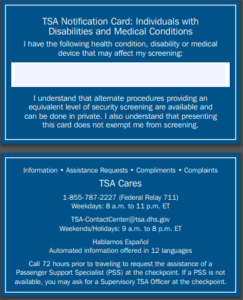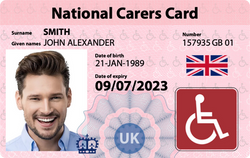The disability card is a powerful tool for disabled individuals to access support and services, but it’s important to understand what it can and cannot do. In this blog article, we’ll offer an overview of the various types of cards available, explain who can (and who cannot) use them, and help you decide if a disability card is right for you.
Types of Disability Cards
The term “disability card” encompasses a wide range of cards that serve different purposes. The most common type of card is a government-issued ID card that confirms your eligibility for state and federal benefits. This type of card is generally issued solely to individuals with serious physical or mental disabilities. Other types of cards may provide access to discounts on products or services, or provide recognition and support for those with disabilities.
Who Can Get a Disability Card?
To receive an official government ID card, you must first meet certain criteria. Generally speaking, individuals with permanent or long-term disabilities that have been diagnosed by a medical professional are eligible. In most cases, you must demonstrate that you are unable to work, take care of yourself, or otherwise function without assistance. Your doctor or healthcare provider will need to fill out and sign the appropriate paperwork in order for you to qualify.
What A Disability Card Can Do
A disability card can open up a world of possibility for those living with disabilities. Depending on your specific card, you may be eligible for government benefits, such as monthly cash payments or health insurance. You may also be able to use your card to access accessible parking spots, transportation services, or discounted goods and services. Some cards may even include additional features, such as medical alert systems or GPS tracking.
What A Disability Card Cannot Do
It’s also important to know what a disability card cannot do. Though it is intended to provide greater access to resources and services, there are some limitations. For example, while a disability card may give you access to certain discounts, it’s not guaranteed to cover the full cost of goods or services. Additionally, depending on the type of card and the issuing agency, you may be limited to certain locations or retailers. Finally, a disability card does not guarantee personal security; it should always be used with due caution.
Can I Get A Disability Card?
In short, yes. Depending on your level of disability and your country of residence, you may qualify for a disability card. It’s best to contact your local government office or healthcare providers to inquire about the specific requirements and eligibility criteria. You can also look online for more information; many governments and organizations have online databases that list the details of their disability cards.

The Bottom Line
Though it can seem intimidating, getting a disability card is usually an easy process. Once you obtain your card, it can open the door to a range of possibilities, from financial assistance to discounts and special services. Ultimately, having a disability card can give you the assurance and peace of mind that comes with knowing that you’re taken care of.

